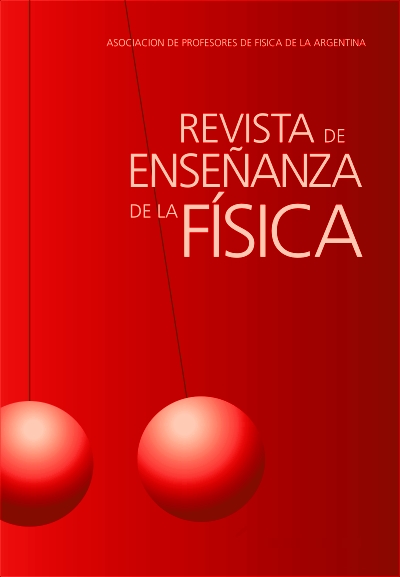The relevance of science education in Hurlingham
DOI:
https://doi.org/10.55767/2451.6007.v35.n1.41385Keywords:
Perceptions of future work, Environmental attitudes, Attitudes towards school science, Image of science, Science and technology educationAbstract
The perceptions that young people have of science and technology, their teaching, and their potential as a life option are decisive both for the choice of related degree programs and for not dropping out of university. In Argentina, the number of graduates in these areas is well below what is needed for national development goals. Knowing those perceptions is important for planning enrollment, retention, and graduation policies. This paper presents data on such perceptions in high school students from Hurlingham, collected through the ROSE questionnaire. The results, in general terms, only differ in specific aspects from those found in other countries. In particular, they present a positive view of science and technology, although with some criticisms, and also a social commitment attitude. This image contrasts with the little enthusiasm and criticism towards school science.
References
Aikenhead, G. S. (2003). Review of research on humanistic perspectives in science curricula. A paper presented at the European Science Education Research Association Conference, Noordwijkerhout, The Netherlands, August 19-23.
Aikenhead, G. S. (2015). Humanist perspectives on science education. En Gunstone, R. (Ed.), Encyclopedia of science education (467-471). Dordrecht, Países Bajos: Springer.
Bauman, Z. (2001). The individualized society. Cambridge: Politi Press.
Comisión Europea. (2004). Increasing human resources for science and technology in Europe. Europe needs more scientists. Luxembourg: Office for Official Publications of the European Communities.
Henriksen, E.K., Dillon, J y Ryder, J. (Eds.), (2015) Understanding Student Participation and Choice in Science and Technology Education. Springer. DOI 10.1007/978-94-007-7793-4.
MEN (Ministerio de Educación Nacional). (2009). Deserción estudiantil en la educación superior colombiana. Bogotá: MEN.
Mincyt, (2022). 5.ta Encuesta Nacional de Percepción Pública de la Ciencia. Evolución de indicadores 2003-2021. https://argentina.gob.ar/sites/default/files/2018/05/percepcion_publica_2021.pdf
Rocard, M., Csermely, P., Jorde, D., Walwerg-Henriksson, H. y Hemmo. V. (2007). Science Education Now: A Renewed Pedagogy for the Future or Europe. European Commission, Community Research.
Schreiner, C. y Sjøberg, S. (2004). Sowing the seeds of ROSE. Background, Rationale, Questionnaire Development and Data Collection for ROSE (The Relevance of Science Education). Acta Didactica, 4. https://roseproject.no/key-documents/key-docs/ad0404-sowing-rose.pdf
Sjøberg, S. y Schreiner, C. (2019). ROSE (The Relevance of Science Education). The development, key findings and impacts of an international low-cost comparative project. Final Report, Part 1 (of 2). Disponible en: https://www.researchgate.net/publication/335664683_ROSE_The_Relevance_of_Science_Education_The_development_key_findings_and_impacts_of_an_international_low_cost_comparative_project_Final_Report_Part_1_of_2
SPU (2012). Plan estratégico de formación de ingenieros 2012-2016. http://www.bnm.me.gov.ar/giga1/documentos/EL005669.pdf Consultado el 28/6/2022.
SPU (2022). Estadísticas Universitarias. https://estadisticasuniversitarias.me.gov.ar/#/home Consultado el 28/6/2022.
Tolentino-Neto, L. C. B. (2008). Os interesses e posturas de jovens alunos frente às ciências: resultados do projeto ROSE aplicado no Brasil. 164p. Tese (Doutorado) – Faculdade de Educação, Universidade de São Paulo, São Paulo.
Vázquez, Á. y Manassero, M.A. (2009a). La relevancia de la educación científica: actitudes y valores de los estudiantes relacionados con la ciencia y la tecnología. Enseñanza de las ciencias, 27(1), 33–48.
Vázquez, Á. y Manassero, M.A. (2009b). Patrones actitudinales de la vocación científica y tecnológica en chicas y chicos de secundaria. Revista Iberoamericana de Educación, 50(4), 1-12.
Vázquez, Á. y Manassero, M.A. (2015). La elección de estudios superiores científico-técnicos: análisis de algunos factores determinantes en seis países. Revista Eureka sobre Enseñanza y Divulgación de las Ciencias 12(2), 264-277.
Published
How to Cite
Issue
Section
License

This work is licensed under a Creative Commons Attribution-NonCommercial-NoDerivatives 4.0 International License.
Aquellos autores/as que tengan publicaciones con esta revista, aceptan los términos siguientes:Los autores/as conservarán sus derechos de copiar y redistribuir el material, bajo los términos estipulados en la Licencia de reconocimiento, no comercial, sin obras derivadas de Creative Commons que permite a terceros compartir la obra bajo las siguientes condiciones:
- Reconocimiento — Debe reconocer adecuadamente la autoría, proporcionar un enlace a la licencia e indicar si se han realizado cambios. Puede hacerlo de cualquier manera razonable, pero no de una manera que sugiera que tiene el apoyo del licenciador o lo recibe por el uso que hace.
- NoComercial — No puede utilizar el material para una finalidad comercial.
- SinObraDerivada — Si remezcla, transforma o crea a partir del material, no puede difundir el material modificado.
- Los autores/as podrán adoptar otros acuerdos de licencia no exclusiva de distribución de la versión de la obra publicada (p. ej.: depositarla en un archivo telemático institucional o publicarla en un volumen monográfico) siempre que se indique la publicación inicial en esta revista.
- Se permite y recomienda a los autores/as difundir su obra a través de Internet (p. ej.: en archivos telemáticos institucionales o en su página web) antes y durante el proceso de envío, lo cual puede producir intercambios interesantes y aumentar las citas de la obra publicada. (Véase El efecto del acceso abierto).














